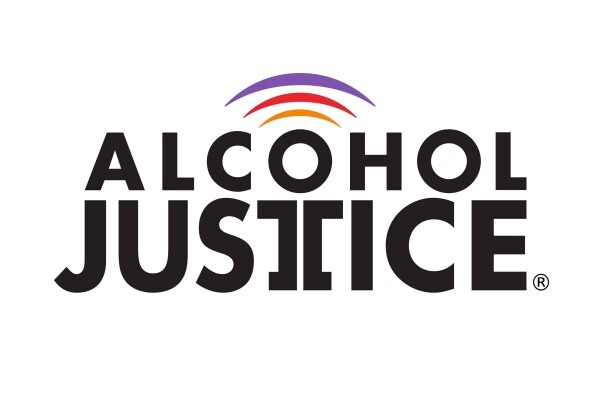Politics
Alcohol Justice Highlights Urgent Link Between Alcohol and Breast Cancer

October is designated as Breast Cancer Awareness Month, a time when organizations aim to shed light on the various risk factors associated with this pervasive disease. This year, Alcohol Justice is advocating for increased recognition of the significant link between alcohol consumption and breast cancer risk. Despite ongoing efforts by advocates and researchers, public awareness remains alarmingly low.
According to the latest data from BreastCancer.org, breast cancer is the most frequently diagnosed cancer among women, leading to an estimated 42,000 deaths annually in the United States. Over 4 million women in the country are either currently battling breast cancer or have survived it. In light of these statistics, any efforts to reduce the incidence of new cases are crucial, especially given the established connection between alcohol and cancer.
In January 2025, the Office of the U.S. Surgeon General released a pivotal advisory titled “Alcohol and Cancer Risk,” clarifying the complicated relationship between alcohol consumption and breast cancer. The advisory states that each year, 44,180 cases of alcohol-related breast cancer are diagnosed, with approximately one in six breast cancer diagnoses in the U.S. attributed to alcohol. It also highlights that the risk begins to increase with the first drink. For instance, the lifetime risk of developing breast cancer rises from 11.3% among women who consume less than one drink per week to 15.3% among those who consume two drinks daily.
“There is no such thing as a safe level of drinking,” emphasized Robert Lipton, PhD, Scientific Director of Alcohol Justice. “That’s crystal clear when you look at breast cancer.” Despite the Surgeon General’s efforts, awareness regarding the alcohol-breast cancer link remains inadequate. A recent study from the University of Alabama found that only 30% of breast cancer survivors knew about the association, while merely 26.3% received advice about this risk from healthcare providers.
The alcohol industry has come under scrutiny for its role in perpetuating misinformation about these risks. The term “pinkwashing,” coined by Breast Cancer Action, describes how companies engage in breast cancer awareness campaigns while simultaneously marketing carcinogenic products. Alcohol Justice has extensively investigated this practice, raising concerns about “in-kind” donations and the use of breast cancer fundraising to enhance profits rather than contribute meaningfully to the cause.
A study conducted by the University of North Carolina at Chapel Hill revealed that advertising linking beer with breast cancer awareness led participants to perceive the brand as healthier overall. This perception is misleading, as no alcohol is exempt from raising cancer risk. “Pinkwashing comes from page one of the industry handbook,” stated Carson Benowitz-Fredericks, MSPH, Research Director for Alcohol Justice. “Distract, dissemble, and disinform. But when it comes to breast cancer, hiding that harm is inhuman and unforgivable.”
Fortunately, many advocates are speaking out about the link between alcohol and breast cancer. Alcohol Justice has recognized several key figures, including Stephanie Mencimer, a staff reporter for Mother Jones, who received the California Alcohol Policy Alliance’s Prevention Hero Award for her investigative work on the alcohol-cancer connection. Additionally, Priscilla Martinez, MPhil, PhD, and Deputy Scientific Director of the Alcohol Research Group, leads the “Drink Less For Your Breasts” campaign aimed at educating young women about the risks associated with alcohol consumption.
Raul Verdugo, Director of Advocacy for Alcohol Justice, emphasized, “People have the right to know that alcohol increases the risk of breast cancer, and to take control of their health.” He encouraged public discourse on the dangers of alcohol, noting that collective action can elevate awareness and understanding of the alcohol-cancer relationship.
As the month progresses, Alcohol Justice continues its mission to raise awareness and advocate for informed health choices regarding alcohol consumption. With the ongoing efforts of researchers, advocates, and healthcare providers, there is hope that knowledge of the alcohol-breast cancer link will grow, empowering individuals to make healthier decisions.
For more information or to schedule an interview, please contact Alcohol Justice directly. The organization has been committed to reducing alcohol-related harm through research, advocacy, and community engagement since its inception in 1987.
-

 Science3 weeks ago
Science3 weeks agoALMA Discovers Companion Orbiting Giant Red Star π 1 Gruis
-

 Top Stories2 months ago
Top Stories2 months agoNew ‘Star Trek: Voyager’ Game Demo Released, Players Test Limits
-

 Politics2 months ago
Politics2 months agoSEVENTEEN’s Mingyu Faces Backlash Over Alcohol Incident at Concert
-

 World2 months ago
World2 months agoGlobal Air Forces Ranked by Annual Defense Budgets in 2025
-

 World2 months ago
World2 months agoElectrification Challenges Demand Advanced Multiphysics Modeling
-

 World2 months ago
World2 months agoMass Production of F-35 Fighter Jet Drives Down Costs
-

 Business2 months ago
Business2 months agoGold Investment Surge: Top Mutual Funds and ETF Alternatives
-

 Science2 months ago
Science2 months agoTime Crystals Revolutionize Quantum Computing Potential
-

 Top Stories2 months ago
Top Stories2 months agoDirecTV to Launch AI-Driven Ads with User Likenesses in 2026
-

 Entertainment2 months ago
Entertainment2 months agoFreeport Art Gallery Transforms Waste into Creative Masterpieces
-

 Health2 months ago
Health2 months agoGavin Newsom Critiques Trump’s Health and National Guard Plans
-

 Business2 months ago
Business2 months agoUS Government Denies Coal Lease Bid, Impacting Industry Revival Efforts








